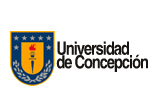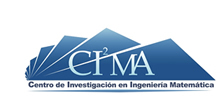News
He graduated in 2018 and is currently a postdoctoral researcher at the U. of Colorado Boulder developing models for aerospace problems
A new challenge in his academic career is facing Dr. Juan Manuel Cárdenas these days. He just joined 'Ann and H.J. Smead Aerospace Engineering Sciences - College of Engineering and Applied Science' of the University of Colorado Boulder, United States, as a postdoctoral researcher.
 Recently, Juan Manuel obtained a PhD degree in Applied Mathematics at Simon Fraser University, SFU (Vancouver, Canada). He recalls that, when he finished school, everyone in his group of friends was determined to study engineering. At that time, he heard about a friend’s brother who was studying mathematical civil engineering and got immediately interested. "I thought 'I don't want to waste my time in a program that might not make me happy'. When you are 17 or 18 years old, you think things are different. I enrolled in this undergraduate program, and I liked it a lot, especially when I learned mathematical analysis and engineering courses. I saw that most of the courses were very intense and challenging and then I knew that, after passing these courses, I would be well prepared for the future".
Recently, Juan Manuel obtained a PhD degree in Applied Mathematics at Simon Fraser University, SFU (Vancouver, Canada). He recalls that, when he finished school, everyone in his group of friends was determined to study engineering. At that time, he heard about a friend’s brother who was studying mathematical civil engineering and got immediately interested. "I thought 'I don't want to waste my time in a program that might not make me happy'. When you are 17 or 18 years old, you think things are different. I enrolled in this undergraduate program, and I liked it a lot, especially when I learned mathematical analysis and engineering courses. I saw that most of the courses were very intense and challenging and then I knew that, after passing these courses, I would be well prepared for the future".
That perception was confirmed years later, when he and fellow undergraduate students Sebastián Moraga and Javier Almonacid moved to SFU for a short stay, to attend various academic and non-academic activities and take some courses in the Ph.D. program. "We realized that the undergraduate program at SFU was different to what we had studied at UdeC. In general, the programs in Canada and in many places, are shorter. So, after finishing our undergraduate studies in Chile, we were very well prepared, according to what SFU professors like Prof. Nilima Nigam told us".
Prof. Manuel Solano Palma mentions “I met Juan Manuel when I taught the Numerical Analysis III course and also the Finite Element course. Then, he enrolled in my course on Discontinuous Galerkin methods. During those years, I could observe his academic and personal growth. Later, he worked under my supervision on his undergraduate thesis. His excellent work has been published in the IMA Journal of Numerical Analysis. I would also like to remark his human quality and initiative to help in different situations”.
For Juan Manuel, the analysis and engineering courses taken at UdeC were key to his successful insertion at SFU, once the language challenge was overcome. "We met Prof. Nilima Nigam and Prof. Ben Adcock, but when we came back, we also realized that there were many more professors doing research on different topics and. In addition, there was the possibility of taking additional courses in which I learned new topics that were useful to conduct my research".
The now PhD, regarding the challenge of enrolling a graduate program abroad, remembers that "at the beginning, in terms of language was very difficult because I did not know English very well. However, in terms of mathematics, my professors gave me a lot of confidence because they told me 'We like your level of mathematics, so just focus these months to reach a good level of English'".
He emphasizes that another mathematical civil engineer from UdeC also supported him in the adaptation process: Sebastián Domínguez, who had also participated in a previous version of these short stays at SFU, managed by the member of the Center for Research in Mathematical Engineering, CI²MA, of the UdeC, Dr. Gabriel Gatica.
In this regard, Dr. Rodolfo Araya Durán, CI²MA's director, noted that "it is very satisfying to see how our former students continue to shine in their respective professional careers. We wish Juan Manuel the best of success in his new academic position".
“After a couple of years”, Juan Manuel explains about his adaptation, “you are already immersed in the culture and learn the language. Then, you can talk with colleagues and participate in conferences”.
Regarding his thesis research, Juan Manuel emphasizes that "it was a little different from what I did in Concepción, where I worked in discontinuous Galerkin methods for the linear elasticity equation. When I arrived at SFU, I studied a very different topic related to the approximation of many variables over different domains, which helps, for example, to analyze some physical phenomenon involving many parameters, such as determining the CO2 level of a plant, through a method known as UQ (uncertainty quantification)".

Juan Manuel explains that his work originated several articles, some published, and others submitted. It was a challenge to combine all of them into a single large text (thesis). He had the support of his advisor, Prof. Ben Adcock. "The thesis writing took me several months, and then I was already able to develop a final draft and then prepare for the presentation".
New challenges and learning
Juan Manuel explains that he decided to join Ann and H.J. Smead Aerospace Engineering Sciences - College of Engineering and Applied Science as postdoctoral researcher, because "the offer seemed extremely appealing to me because they work on an interesting project. It is basically a multidisciplinary work between universities relating to the engine productions for spacecraft, such as those of NASA, where a laser goes through a combustion chamber and different effects occur on the walls. They use mathematics to model this phenomenon, where several topics are related to my research line"
"Obviously", he emphasizes, "I'll have to learn new things, but I found the project very interesting also it is linked to the Space Engineering Department. It's more applied than what I did before and requires several mathematical tools".
---
Photos:
1. At website home, Juan Manuel defending his PhD thesis at SFU
2. In this page, already invested with the highest academic degree, together with his classmates Sebastián Moraga and Javier Almonacid
3. Also in this page, next to his new supervisor, Alireza Doostan, in front of the Ann and H.J. Smead Aerospace Engineering Sciences in Colorado

